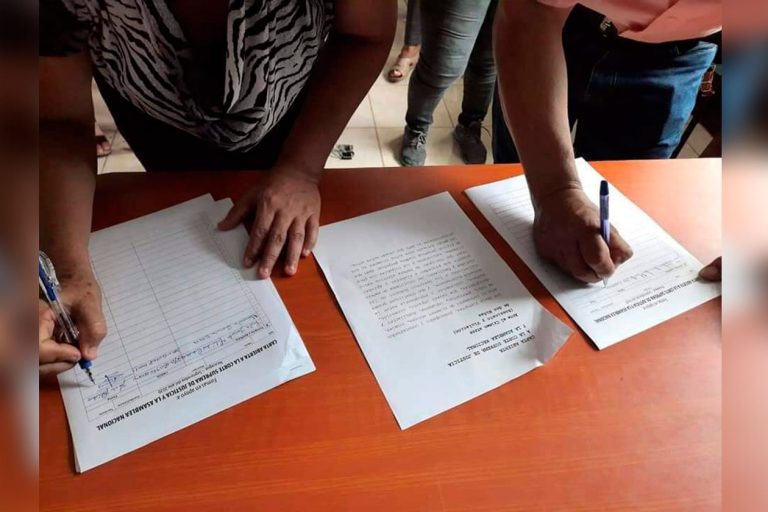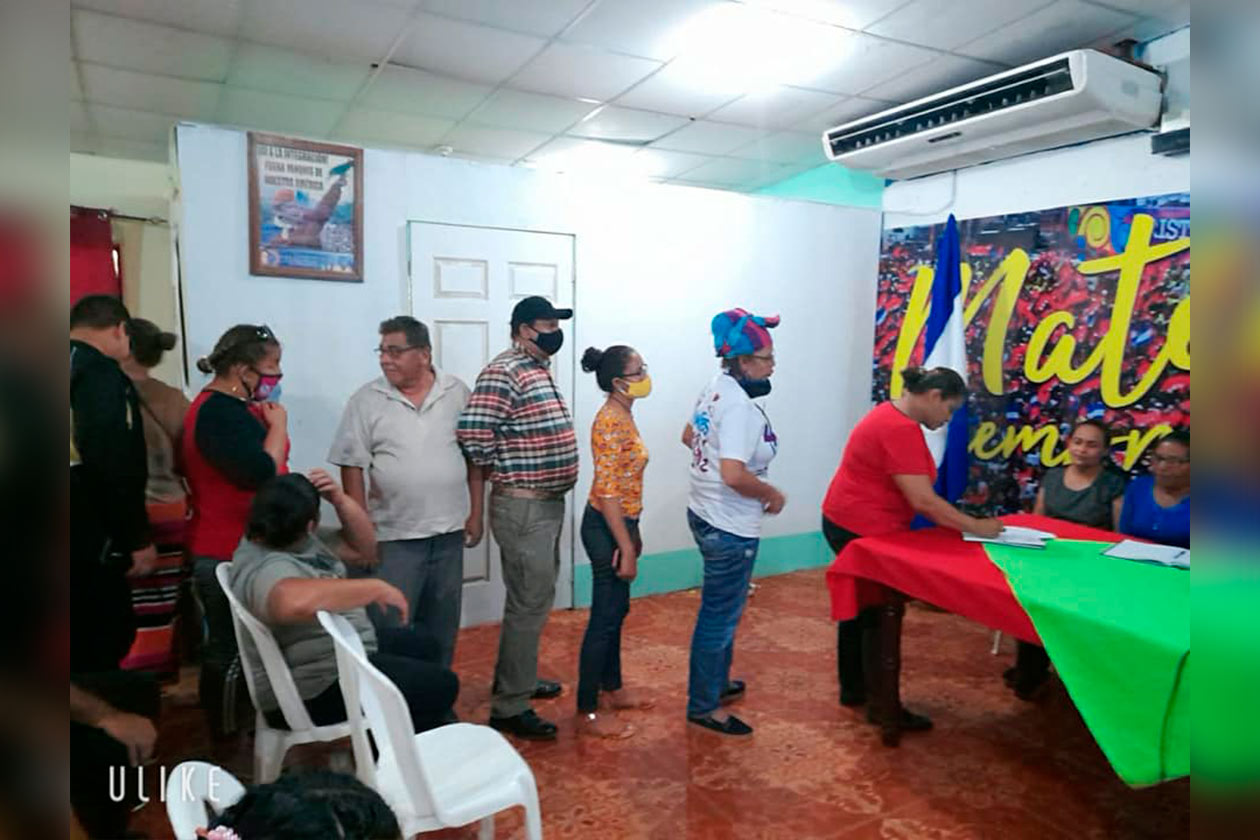20 de septiembre 2020

Children of Exile: The Births “Sowing Hope” in the Camp of Nicaraguan Farmers

PUBLICIDAD 1M
PUBLICIDAD 4D
PUBLICIDAD 5D
The collection is done in door-to-door visits, in schools and public institutions, where some sign to keep their jobs

The government’s signature campaign in favor of life imprisonment.
The signature campaign began hours after vice president and government spokesperson, Rosario Murillo, gave her midday speech on Thursday. It seeks the approval of life imprisonment to punish “hate crimes”. The First Lady assured such is “a demand of Nicaraguan families.” Sandinistas were immediately sent out to collect signatures supporting a letter addressed to the Supreme Court and the National Assembly.
“Life imprisonment is what the Supreme Court is asked to apply and send it to the National Assembly. It is the unanimous clamor of Nicaraguan families, to punish these hate crimes, heinous crimes,” she said.
The change in the law ordered by the Presidency, is an alleged response to the increased murders of women. However, it is directed against the Blue and White opposition majority that maintains the civic protest. This was made clear by president, Daniel Ortega, who never mentioned the femicides in his interpretation of “hate crimes.”
“Many families have told us, and with good reason, that the death penalty should be applied to these criminals. Nonetheless, we are part of an international agreement where we committed not to apply the death penalty in Nicaragua. However, that doesn’t stop us from applying life imprisonment for criminals,” she said in the speech commemorating Central American Independence.

State workers line up to sign the petition sent from the Presidency.
The document delivered to the Sandinista bases explains that the signature collection is for the application of life imprisonment to crimes of gender violence. They refer to the murder and rape of two girls, aged 10 and 12, last Saturday in Mulukukú. However, the legal reform is, in fact, promoted for political purposes.
“The undersigned, concerned and dismayed at the increase in atrocious, cruel, hateful, aberrant, inhuman, humiliating and degrading crimes (…) urgently request that they proceed to draft and pass laws that effectively punish these crimes (… ) given that the current penalties are not proportional to the damage caused by these acts,” the document cites.
The signature drive is done in door-to-door visits and also at schools and public institutions. In these spaces, many public employees are believed to sign in order to keep their jobs. Meanwhile, others signed out of a genuine concern about the violence.
Feminist María Teresa Blandon says using the pretext of the murder of the girls to announce such a “brutal” measure is nothing more than “a crude manipulation of an act of violence that shocked a good part of Nicaraguan society.” She added, “the provision to institute a life sentence has nothing to do with the femicide of these two girls.”
Government media reported that the signature collection already began in Carazo, Managua, Río San Juan, León, Rivas and El Rama.
The latest independent report on femicides this year, monitored by the group Catholics for the Right to Decide, revealed that we are less than 10 cases away from exceeding the number of murders of women from last year. Up until September 18, 2020 a total of 57 women were killed, of whom at least 10 were minors.
In August 2018, the regime had already sent its bases to collect signatures. That time it was to accompany a letter sent to Ortega and the Supreme Court. The petition requested “justice and reparation for the victims of the coup attempt and terrorism, and jail for the guilty for causing mourning, destruction and irreversible damage.”
“We have organized students, merchants, transporters and union organizations to strengthen our campaign to demand justice through an intense day of collecting signatures at the national level,” Milton Ruiz, national coordinator of Sandinista Youth, said in a news conference.
Months later, state workers were forced to sign a letter to Pope Francis to remove Monsignor Silvio Baez. The bishop was accused of “instigating violence and disunity that does not correspond to his assigned pastoral tasks.”
Archivado como:
PUBLICIDAD 3M
Confidencial es un diario digital nicaragüense, de formato multimedia, fundado por Carlos F. Chamorro en junio de 1996.
PUBLICIDAD 3D